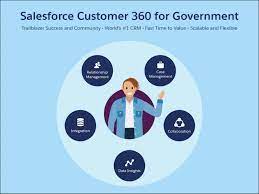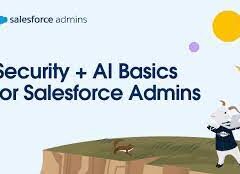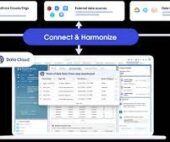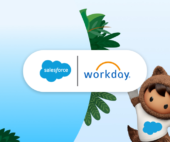Data Cloud stands as the fastest-growing organically built product in Salesforce’s history, signifying a significant milestone in solving the enduring data problem within Customer Relationship Management (CRM). Salesforce Data Cloud Evolution since its beginnings is an interesting story.
With an average of 928 systems per company, identity resolution becomes challenging, especially when managing more than one system.
Salesforce’s expansion into AI-powered CRM emphasizes the synergy between AI and data, recognizing that AI’s optimal functionality requires robust data support. Data Cloud acts as the foundation accelerating connectivity across different ‘clouds’ within the Salesforce platform. While it’s available for purchase, even Salesforce customers without licensed Data Cloud still benefit from its foundational advantages, with increased strength when utilized as a personalization and data unification platform.
The history of Data Cloud reflects its evolution through various iterations, from Customer 360 Audiences to Salesforce Genie, ultimately settling as Data Cloud in 2023. This journey marked significant developments, expanding from a marketer’s tool to catering for sales, service, and diverse use cases across the Salesforce platform.
Data harmonization with Data Cloud simplifies the complex process, requiring fewer efforts compared to traditional methods. It comes pre-wired to Salesforce objects, reducing the need for extensive data modeling and integration steps. The technical capability map showcases a comprehensive integration of various technologies, making Data Cloud versatile and adaptable.
Data Cloud’s differentiators include being pre-wired to Salesforce objects, industry-specific data models, prompt engineering capabilities, and the inclusion of the Einstein Trust Layer, addressing concerns related to generative AI adoption.

Looking ahead, Data Cloud continues to evolve with constant innovation and features in Salesforce’s major releases. The introduction of Data Cloud for Industries, starting with Health Cloud, signifies ongoing enhancements to cater to industry-specific needs.
Closing the skills gap is crucial for effective Data Cloud implementation, requiring a blend of developer skills, data management expertise, business analyst skills, and proficiency in prompt engineering. Salesforce envisions Data Cloud, combined with CRM and AI, as the next generation of customer relationship management, emphasizing the importance of sound data and skillful implementation.
Data Cloud represents the ‘Holy Grail of CRM,’ offering a solution to the long-standing data challenges in CRM. However, its success as an investment depends on the organization’s readiness to demonstrate return on investment (ROI) through solid use cases, ensuring unified customer profiles and reaping the rewards of this transformative technology.
FAQ
When did Salesforce introduce data cloud?
Customer 360 Audiences: Salesforce’s initial CDP offering, launched in 2020. Salesforce CDP: The name changed in 2021 to align with how the blooming CDP market was referring to this technology.
Does Salesforce data cloud compete with Snowflake?
They offer distinct capabilities and cater to diverse business needs. Salesforce Data Cloud specializes in data enrichment, personalization, and real-time updates, while Snowflake boasts scalable data warehousing and powerful analytics capabilities.
What is the data cloud in Salesforce?
Deeply integrated into the Einstein 1 Platform, Data Cloud makes all your data natively available across all Salesforce applications — Sales Cloud, Service Cloud, Marketing Cloud, Commerce Cloud, Tableau, and MuleSoft — to power automation and business processes and inform AI.
Is Salesforce Genie now data cloud?
Announced at Dreamforce ’22, Salesforce Genie was declared the greatest Salesforce innovation in the company’s history. Now known as Data Cloud, it ingests and stores real-time data streams at massive scale, and combines it with Salesforce data. This paves the way for highly personalized customer experiences













